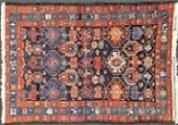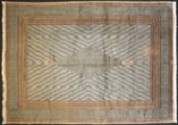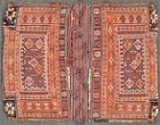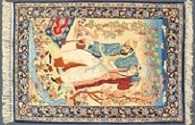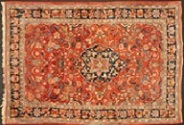What Syria Might Mean to Kurdish Sovereignty
July 11, 2012
A geography largely assumed uninhabitable, that's set apart from urban society, large and spanning into four countries is where the unique Kurdish population has taken as their home. Within what is called Kurdistan in some regions or simply folded into the borders of other regions, it's terrain is expansive. Their population is estimated at 16 million with about half living in Turkey, 6 million in Iran, 2.5 million in Iraq, a million in Syria and several hundred thousand among the other nearby countries. It's impressive that the ties of loyalty by a group can transcend established borders and aspire to gain such a reckognized region or even a unified state.
The history of the Kurds is as vast as the land they occupy, predating the time of most present day nations. They're older than the Romans, the Greeks, and the established Western religions. They are said to have originated about 3000 years ago and the lore of their beginnings defines them as the progeny of 400 women who were victimized by devils on the way to King Solomon's Court. Accurate or not, it portrays an image of terror and mistreatment. Historically known as fierce fighters, they led successful campaigns throughout history but had supported Nader Shah's failed Persian campaign with the Ottomans in the 18th century. A battle of great intrigue was their victory against the Roman occupation of the Holy Land in Jerusalem that repositoned power back from the Christian crusaders to Muslims. Their religious belief is predominantly Muslim although it hasn't been the central theme for all of those who practice it compared to Iranian shi'as or pious sunni's of the Arab world.
Their heritage predated the major established Western religions from 1500-2000 years ago. During that time the religions included mostly idol pagan worship or the early monotheist beliefs of the Zorastrian or Mazdaist beliefs. So today an inconsistent approach to religion seems to be expected for the Kurds depending on what country one travels to. For example in shiite dominated Iran where an expanding liberal population exists, Kurds often partake in alcohol consumption and secular activates. However in liberalized Turkish culture, the Kurds tend to adhere to a conservative practice of Muslim. The problematic relations that they have long encountered with national governments has involved lack of equal acceptance or autonomy with the areas they occupy while many clashes have occurred in northern Iraq and southern Turkey. Some of the actions taken by the established powers in Iran, Soviet Union and United States have used Kurdish groups as pawns in dealing with enemy nations.
The large concentration of Kurds in Northern Iraq has been seen as a threat to national stability due to their number and independence seeking agenda. Representing approximately two-fifths of the Iraqi population, their territory in the north was described as "leaving the picturesque hillsides of Arabistan and venturing into repeating ranges of peaks, rugged and unforgiving." The image of a distant location of moorish or mountainous steeps seems to be the preferred habitat for which the Kurdish tent to gravitate toward. Their loosely scattered territories among several countries is a testament to the shortcomings they've faced in proclaiming an official land. However, the apprehensive acceptance from the regions that they occupy has been better in some countries than in others. The Soviets were at times accepting of an established territory for them inside Mahabad of northern Iran when Moscow had a stronghold in the region. The Soviet grasp fell though in Iran and those Kurds were repressed by the country's leader Rezah Shah and the Kurdish Republic's leader Ghasi Mohammad was killed. Mullah Mustafa Barzan also was an important figure who lived for many years as an exile in the Soviet Union. He was called by the Iranian and US government at times of problematic relations to lead rebellious attacks in Northern Iraq.
The Kurds ability in the Iraq-Iranian and Persian Gulf War to entrench a presence that had been largely maintained for centuries, strengthens their cause for autonomy. The rich oil land which they occupy in Northern Iraq has been a tough discussion with the government there in considering the question of their claim to it.
As for armed affiliations and protective forces, the Kurds maintain trained fighters although their numbers are small with less than about 15,000. The presence of these armed fighters mostly located in outposts along the Northern Iran and Iraqi borders may be a product of their desire for self rule and/or the bellicose nature of their past. These military branded groups are referred to as pesh merga, meaning those prepared to die, and include various cooperating factions aligned with yet also protecting against national authorities of Iran, Iraq, and Turkey. To understand the structure of their forces requires some knowledge of the border relations along those territories. Five different Kurdish affiliations are separately managed and operate in specific regions. The largest pesh merga is the Kurdish Democratic Party. Protecting against unexpectant aggression from Iraq and emphasizing it's solidarity, armed soldiers patrol the outer edges of the community ready if necessary. As they feel rights being infringed upon, violence has a tendency to occur more frequently according to a Turkish news source that estimated 150 citizens killed by an armed militia attack several years ago.
The extent of their political strength among national governments various upon location. Their western occupation within Syria and farther east in Soviet Union has had a less powerful grip than among Kurdish regions of Turkey and Iraq in recent years. The Kurdistan Democratic Party of Iran(KDPI) secures the area along Iran and stands ready to attack against them should independence be threatened. Contrastingly, the Kurdish Democratic Party is backed by Iran to withstand the Turkish or Iraqi pressure. Patriotic Union of Kurdistan, PUC, is a further shield against Iraq with limited support from Iran and Syria. The importance of such teaming was largely strategic in the years around the Iran-Iraqi war but still remains. The most aggressive enforcement and example of the cultural neglect that the Kurd's feel is the Kurdish Worker's Party. They are a more politically motivated group who have shown series of extremism in small towns near Turkey. Claiming to defend the cultural identity is what they strive for as a challenge to the repression of their ethnic language and a silenced voice in the media.
Today Syria, represents the vicious stray dog due to the horror that has hurt so many of it's citizens in the last 13 months. It's diplomatic ties wtih Russia have been reasserted in the latest refusal from Russian not to help enforce a removal of Syria's president. The Kurds there though numbering about a million have a moral dilemma to face. Kurdish opposition against the violence appears evident, yet a maneuver by al-Bashar to offer Kurdish territory should they stay neutral in what's nearly a civil war could be all too tempting. Turkey has been a leading critic of the human rights crises that's continued for over a year and recently had a military aircraft gunned down near Syria. For the Kurds to follow the hard leaning agenda of Turkey and avoid any interest in supporting al-Bashar hopefully will seemingly carry the stronger advantage. Reconfiguring the stasis of loyalties and borders in this hotbed of turmoil could have important results for the future Kurdish region. Should al-Bashar's regime crumble in the near term the world may rejoice. When it does, so too may the Kurds to think of the area as a viable settlement and a newly formed government to foment their desire to prosper.
Please Click Here First to Load Youtube Video of author Norm Chomsky's discussion as he speaks about Turkish persecution of the group in the 90's. This video's closing statement sums up the discussion.
